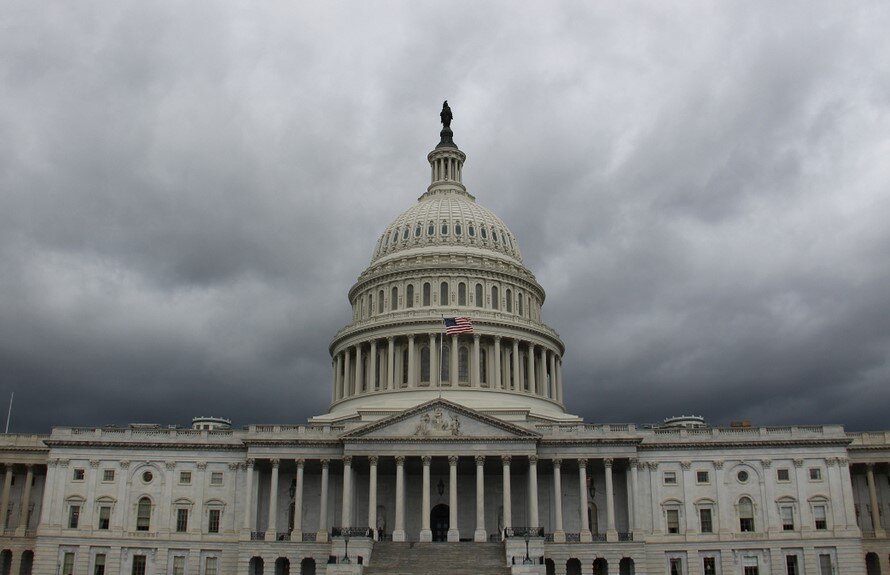The Rooney Roundup
359 days since Rep. Francis Rooney has appeared in an open, public forum
Feb. 15, 2019 by David Silverberg
Yesterday in the US House of Representatives, Rep. Francis Rooney (R-19-Fla.) voted against the compromise spending bill averting another government shutdown.
Despite Rooney’s opposition, the spending bill, House Joint Resolution (HJRes.) 31, passed last night by a vote of 300 to 128.
The spending bill, which had already passed the Senate, now goes to President Donald Trump’s desk for signature. Once signed, it will fund the full government for a year, preventing another shutdown. However, President Trump has announced that he will be declaring a national emergency and redirecting unobligated funds to his border wall —funding which may have been destined for Everglades restoration, Hoover Dike repairs and Hurricane Irma assistance in Southwest Florida.
Foreign affairs: US involvement in Yemen
Yesterday Rooney also voted against ending US engagement in hostilities in the war in Yemen.
Despite his opposition, the Yemen war resolution (HJRes. 37) passed by a vote of 248 to 177.
Rooney stated that resolution would set a bad precedent: “…it establishes a precedent that any disgruntled Member of Congress in the future can deploy to challenge United States security assistance to other countries, which is a vital part of our foreign policy and national security. Any challenge to the use of such assistance could endanger U.S. allies like Israel or our counter-terrorism partners.”
Saudi Arabia is currently at war with Houthi rebels in Yemen.
Rooney opposes sea level rise but doesn’t acknowledge climate change
In an environmental first for Rooney, on Friday, Feb. 8, he introduced House Resolution 112, “expressing the sense of the House of Representatives that sea level rise and flooding are of urgent concern impacting Florida that require proactive measures for community planning and the State’s tourism-based economy to adapt.”
The resolution is not legislation and has no binding power or authority. It merely expresses an opinion and invites the House to concur.
The resolution acknowledges the threat of sea level rise to Florida military bases, the Kennedy Space Center, businesses and the Everglades. As a result of these effects it: “(1) acknowledges the significance of sea level rise and flooding throughout communities across the country and in Florida; and (2) affirms the need for greater adaptation funding and the incorporation of historical flooding and sea level rise projections into planning.”
In a statement accompanying the resolution Rooney stated: “Sea-level rise, storm surge and flooding currently threaten millions of homes across the state of Florida. I introduced this resolution to express my grave concern about the dangers associated with rising seas, and to stress the need to proactively prepare for future effects, such as increased risks of flooding from stronger hurricanes.
“Without preventive actions taken now, we risk the future livelihoods of our beautiful Florida communities. That’s why I’m calling for greater funding and the incorporation of sea-level rise projections to better plan for such events.”
The resolution has three other co-sponsors as of this writing. It was referred to the House Transportation and Infrastructure Subcommittee on Water Resources and Environment.
Analysis
First, Rooney’s acknowledgment of sea level rise and his recognition that preparations must be made for it, is commendable.
However, missing from this resolution is any acknowledgment of the cause of sea level rise: climate change. Apparently, Rooney is not ready to go that far. In his last public appearance before constituents on Feb. 22, 2018 on Marco Island, Rooney dismissed climate change, stating: “We definitely need to learn all we can about why these sea levels are rising. I’m just not sure how much is man-made and how much is not. I think that there is very complex issues surrounding global warming. Sea levels have been rising since the ice age.”
To date, Rooney has not issued any statements expanding or altering this position.
Dealing with the effects of climate change while denying its cause is a common Republican tactic. It allows Republican politicians to stay in line with Trump’s climate change denial while recognizing that they nonetheless have to deal with its effects in their states and districts. (For a larger discussion of this strategy with a particular focus on Sen. Marco Rubio (R-Fla.), see “Why conservatives keep gaslighting the nation about climate change,” from Vox.com.)
Given Rooney’s prior legislative record of failing to advance any standalone bills past the committee referral stage and the paucity of co-sponsors of this resolution, the resolution is unlikely to move forward in the House or have any larger impact.
Foreign affairs: Rooney opposes US troop withdrawal from Syria
In a rare dissent from President Donald Trump, on Feb. 1 Rooney authored an op-ed in The Hill newspaper, “Stay in Syria to Counter Iran,” opposing a sudden pullout of US troops from Syria.
“Regardless of the past decisions which drew the United States into the conflict in Syria, we should not abandon our role in the fight against the Islamic State. A withdrawal would give back all that we have achieved and would be an abandonment of our Kurdish allies. The void we would leave will create space for other power players with interests adverse to ours, like Russia and Iran, to gain ground in the Middle East,” Rooney wrote.
Trump’s precipitous decision to withdraw all US troops from Syria on Dec. 19 led to the resignation of Defense Secretary Jim Mattis and passage on Feb. 5 of the Strengthening America’s Security in the Middle East Act of 2019 (Senate 1), a resolution against withdrawal. The House has not yet considered it.
Rooney has previously supported Kurdish independence, writing in Oct. 2017 that: “Given our own tradition and the recent history of Iraq and Kurdistan, we should at least consider the potential strategic advantages of Kurdish independence.”
